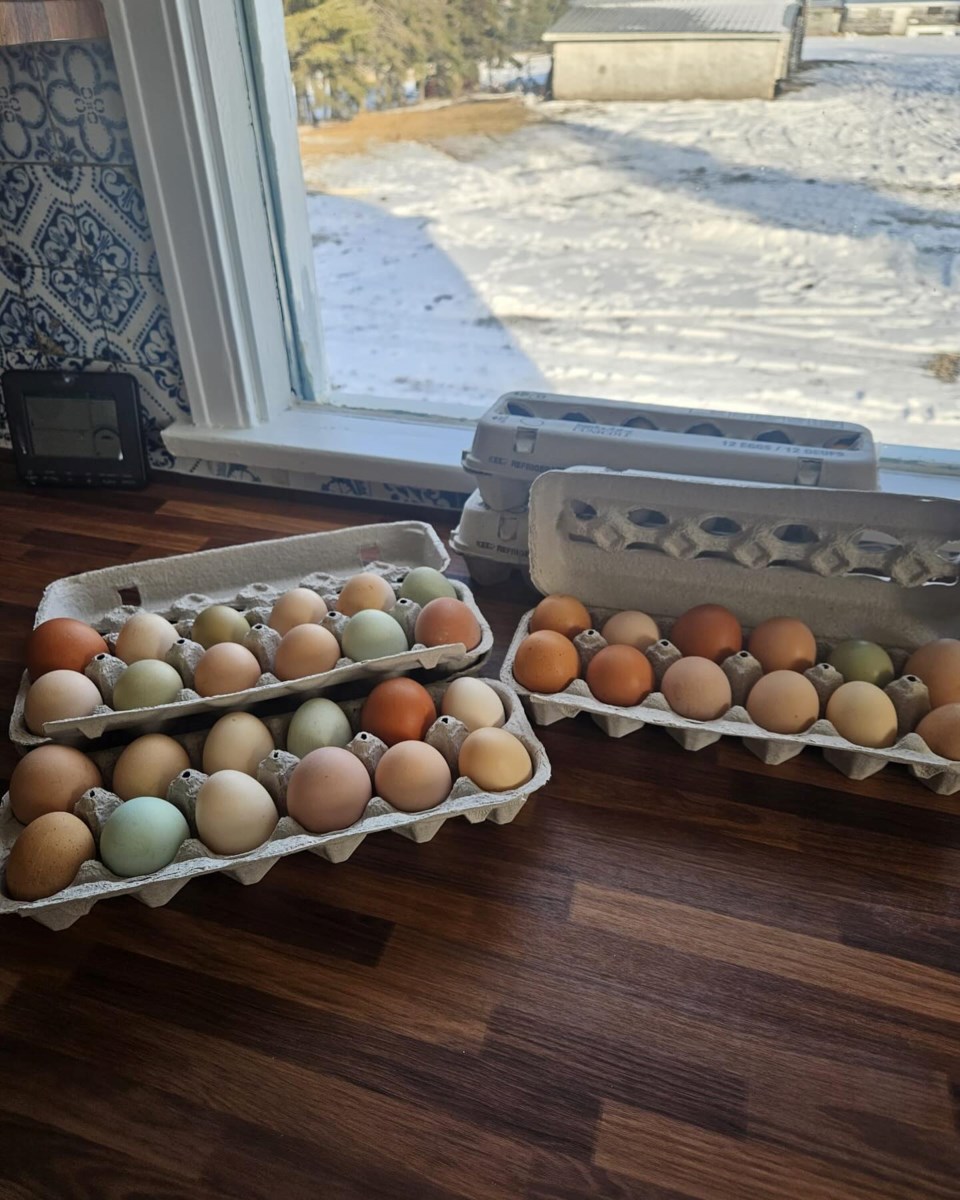LAKELAND - Small family farms appear to be making a resurgence in the Lakeland according to Ron Wirsta, the manager of the St. Paul Municipal Seed Cleaning Plant.
“I see a lot more people looking after themselves in regards to small acreage growers and farmers that look after their own selves through buying local feed for chickens, buying local feed for their own pork production and their own beef production,” said Wirsta.
He said in the last decade he has seen about a 200 per cent increase in the number of customers coming through his door looking for feed products for animals for their own consumption.
“These are people that only have two to 10 acres that are looking out for themselves on that acreage,” said Wirsta.
Pete and Helen Klassen own eight acres near Duvernay and are distributors for Hembrough Custom Hatching, a poultry breeder based in Lacombe that sells several varieties of chickens and turkeys.
“We had to sell a minimum of 1,000 chicks in one year, and we've already passed that by a lot, and it's only like four and a half months into the year,” said Pete Klassen.
Klassen said they keep a flock of about 80 laying hens, which produce eggs for their family and to sell at their roadside stand and farmers’ markets, where they also sell vegetables grown in their greenhouse.
The Klassen’s also have two alpacas, three sheep, a steer and a donkey. The alpacas produce a lightweight and hypoallergenic wool, while the other animals will eventually be eaten.
“The sheep are about to lamb. So, the sheep we're going to be selling them. We're going to get them butchered, and then we're going to be selling the meat out of our farmers’ market there. At some point we do want to get some more steers, some more cattle, so that we can do that with them as well,” said Klassen.
Extra eggs
Stephanie Stark, who lives in the St. Paul area, has a flock of about 50 laying hens. She started selling her extra eggs to friends and family and then added to her flock.
“I raise our own butcher chickens also. And then we raise our own beef, so we know where our beef comes from. And then my father-in-law does the pork. So, we do all our own at home,” said Stark.
She and her husband Chad do enough crop farming to feed their animals and rent some land to other producers.
“We grew up with it and we kind of wanted to carry on,” said Stark.
She said one of the benefits of raising their own meat is that it makes entertaining a crowd much easier.
“If I had to pre-book my whole week of meals and buy everything at the store, I for sure wouldn't have the entertainment that we do. Because it's very often like . . . we threw a full chicken in [the oven] so we can feed an extra five people for supper. It gives us more flexibility,” said Stark.
She adds, “You can't live without food. Farmers feed the community, whether it's selling the grains or the canola or the meat.”



